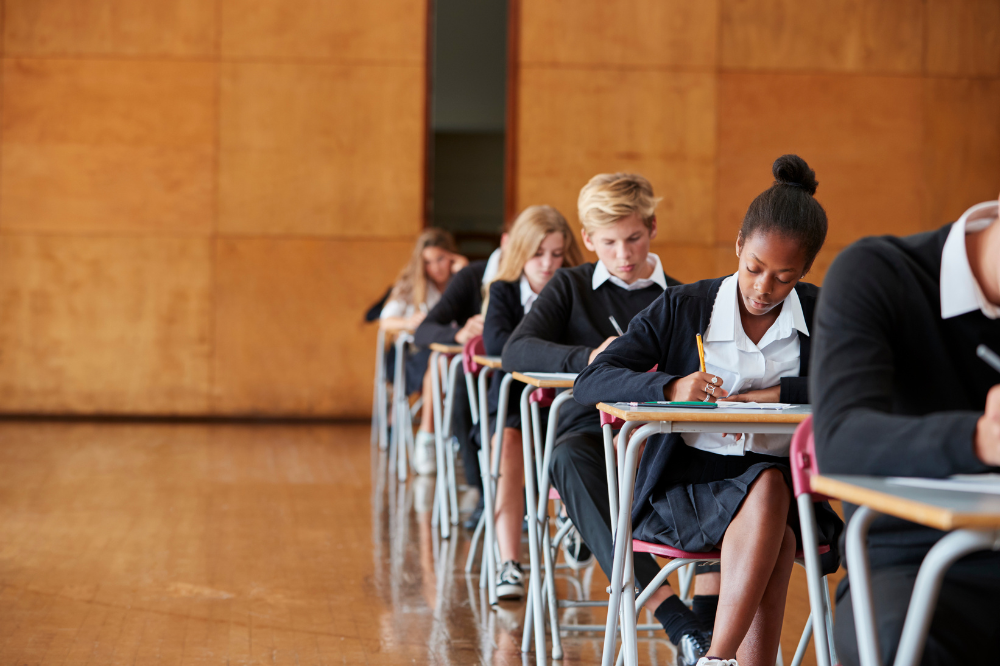
As the school year winds down, students find themselves in one of two camps — those energised by the holidays ahead, and those feeling the weight of end-of-year exams.
On Thursday, about half a million senior students began sitting their national exams for secondary school certificates including the Victorian Certificate of Education, the New South Wales Higher School Certificate, and the Queensland Certificate of Education.
With the final exams now underway, academic and wellbeing experts have united to share some key insights for senior students. One of them is Australian Catholic University (ACU) standardised assessment expert Associate Professor Steven Lewis, of the Institute for Learning Sciences and Teacher Education.
“You will have likely heard the expression, ‘failing to plan is planning to fail’. Seek out past exams to familiarise yourself with what to expect,” Associate Professor Lewis, a former teacher, said. “Don’t let yourself be caught off-guard, as this could increase your anxiety.”
Associate Professor Lewis said it was important students did their best during exams but that they also understood their Australian Tertiary Admissions Rank (ATAR) did not define them.
“Year 12 exams are the gateway to many post-school opportunities like university, apprenticeships and work. Research your preferred outcomes but remember that many roads lead to that destination,” he said.
“Success looks different to different people, and it is about finding the right path for you. You can always change your mind about where you’re going or how you will get there.”
Healthy habits that ease exam stress
For students with diverse needs, it is important that they seek a support person who can guide them through the end-of-year exams and use any approved special provisions.
“If you’ve got special provisions, it’s important to practise using them,” Inclusive education expert Dr Matthew White, of ACU’s School of Education based at Strathfield, said. “Take your rest breaks or extra time and build that into your practice, so it becomes second nature when you are in the actual exam.”
Practising social-emotional calming strategies can also be a big help, Dr White added.
“Exercise, sleep well, drink water, take a breath and find ways before the exams to calm those nerves as part of a daily routine.”
Resilience expert Dr Kylie Trask-Kerr, of ACU’s School of Education in Melbourne, said while some strategies taught at school could help to manage everyday stress before exams, students should seek support from trusted others to help put things in perspective if an exam didn’t go as planned.
“At those times, it can help to reframe the exam as only one part of the bigger picture. Try not to handle it all alone. Talking with a trusted friend, teacher, family member or counsellor can put things in perspective,” Dr Trask-Kerr said.
“Positive connections with teachers and peers can help you to bounce back and be ready for your next exam.”
Teachers did the groundwork — now it’s students’ time to shine
Head of ACU’s School of Education in Victoria and physical education expert Professor Amanda Telford said it was important for students to stay active for their health and cognition during the revision and exam period.
“Regular physical activity reduces symptoms of both depression and anxiety. Physical activity also aids cognitive processes and memory,” she said.
“Improvements in academic performance can occur with as little as a four-minute dose of physical activity. Movement aids your emotional wellness, by boosting mood, allowing vital energy to flow and it also enhances the quality of your sleep, which can be affected in the lead up to exams.”
As for senior teachers, ACU educational leadership expert and former school principal Associate Professor Paul Kidson said while they would continue to support their students, they had already done the heavy lifting.
“This is finals territory. Coaches of the winning team haven’t kicked a ball,” Associate Professor Kidson said. “Teachers have given all the strategies, the content, the tips, and the best advice they can give, but it’s the students who will play the game.”

